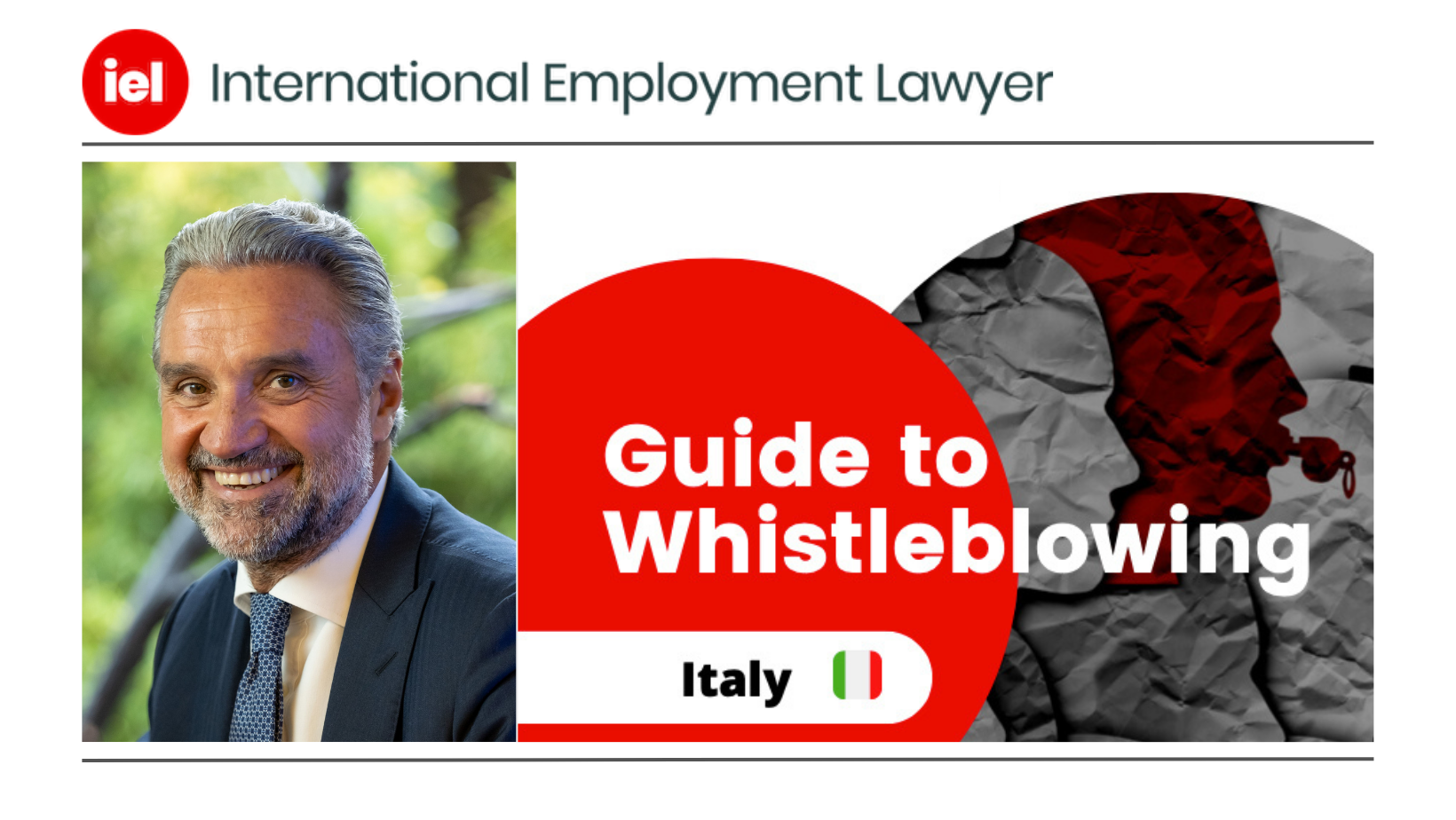Article posted by IEL.com
After a long wait, the new Legislative Decree No. 24/2023, implementing the European Directive on whistleblowing, has finally been issued in Italy.
Before this decree, the specific legislation on whistleblowing only covered civil servants and employees in banks and financial institutions. In the private sector, the status of whistleblowers was governed within the peculiar framework of Legislative Decree No. 231/2001 regarding the criminal liability of entities, but only since 2017.
Therefore, this new decree is big news for Italy.
The new decree is part of a transparency trend in the national legislature, following a strong European Union push in this direction. It promotes the reporting of offences and encourages the widespread control of legality in companies, with a view to greater management accountability.
So that this increase in transparency in companies could take place, the new decree followed three lines of action.
Objective and subjective scope of application of the whistleblowing regulation
First, the decree adjusted the objective and subjective scope of the application of regulations concerning whistleblowing.
Objectively, the catalogue of violations that can be reported now includes all violations of national or EU regulatory provisions that harm the public interest or the integrity of a private entity. Moreover, the violations are not limited to criminal offences, but include administrative, accounting and civil offences.
Some exclusions are specified in the decree (eg, violations linked to the personal interest of the whistleblower).
From a subjective point of view, the decree has greatly expanded the range of entities required to comply with the whistleblowing discipline, thus making its provisions mandatory for the first time on a large scale in the private sector.
There is also an extension of the protections offered. Protection is no longer only provided to the actual whistleblower, but also to persons who have in some way “facilitated” the whistleblowing, or those who have made a public disclosure, without going through internal or external whistleblowing channels, albeit only under certain conditions.
Persons making a public disclosure, in particular, enjoy the same protection as the whistleblower if:
- the person making the disclosure has previously made an internal and external report or has made an external report directly and no reply has been received within the time limits provided for in the decree;
- the person making the disclosure has reason to believe that the breach may constitute an imminent or manifest danger to the public; and
- the person making the disclosure has reason to believe that an external report may carry a risk of retaliation or may not be effectively followed up on because of the specific circumstances of the case.
Read the full article on IEL.com



